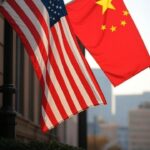Energy News Beat
Darren Shelton from FuelTrust discusses why shipping prefers the illusion of regulation.
In global shipping, we often talk about regulation as a good thing – and rightly so. Rules are meant to protect the environment, improve safety and support fair labour conditions. The International Maritime Organization (IMO) and other bodies have spent decades creating systems to guide our industry toward higher standards.
But despite all this effort, something still feels off. Progress comes way too slowly. Enforcement appears uneven. The playing field unlevel. And the best-written rules don’t seem to change much at sea.
So we must ask the harder question: what if the real issue isn’t the quality of regulation but the quiet preference for keeping it ineffective?
Rules that reassure but fail to reform
Shipping has many standards, but not all are enforced equally. Some ports have strong oversight and others where the rules are far more relaxed. Ships can sail through some waters without ever facing accountability’s headwinds.
Yet, most in the industry still support the idea of regulation. Why?
Perhaps it’s because law – at least the appearance of it – offers something useful. It reassures the public that action is being taken. It gives a sense of structure and legitimacy and, at times, helps avoid deeper scrutiny.
This creates a quiet system where everyone looks like they’re doing something, without ever disrupting the way things really work in the background.
To be clear, this isn’t necessarily a bad thing.
Shared accountability, shared avoidance
Much like the nets used at sea, shipping is a complex web in which enforcement is difficult because responsibility is spread out.
- Shipowners fault charterers.
- Charterers blame port states.
- Port states point to flag states.
- Flag states defer to the IMO.
It’s literally pointless because all could be right in redirecting the concerns. Likewise fruitless since accountability slips through the cracks, not because people are dishonest but because the system itself allows ambiguity.
This ebb and flow of responsibility makes it easy to celebrate new rules on paper while real change stalls at sea.
We are not alone
Shipping isn’t the only industry playing this game. Finance, big tech and energy all operate within frameworks that look robust, allow power, innovation and decision-making to flow far from the reach of regulators.
In this light, maritime is simply playing the same game – just at sea.
As is true in these other industries, all of whom intersect in shipping, the illusion of strong oversight gives helpful cover for the real work to happen in the shadows. There companies can experiment, invest and grow – without the friction of strict control. And to be fair, that’s where the most meaningful progress happens.
So maybe we should ask: should it be this way? And if so, why not simply say it openly?
Calling it what it is
The nomenclature of naming ships is an enigma that baffles the heartiest of sailors. How we call what we mean is, to be sure, a riddle. Considering that, perhaps shipping prefers space to solve big problems in its own way – through commercial novelty, pilot programs, private partnerships and advanced technology.
Nothing wrong with any of that. In fact, many of shipping’s greatest leaps forward didn’t come from rule-making bodies. They came from captains of industry who decide to lead. And if that’s the best path for progress: let’s be honest about it.
Let’s stop pretending that more rules, by themselves, will fix everything. Let’s acknowledge that what we often call “regulation” is more like a mutually beneficial agreement:
You write rules that we mostly like.
We’ll act like we’re really following them.
Together, we’ll smile like progress is being made.
Because it probably is.
A higher path forward
The probability of all ploys is that the illusion can only last so long. Eventually people figure out the magician isn’t truly sawing the woman in half. When public trust fades or when a crisis hits, soft enforcement turns into a harsh spotlight. Suddenly the very freedom that worked so long can be quickly snatched away, more by force than by choice.
So, what if there is a better way? What if we deliberately moved from illusion to intention?
That doesn’t mean getting rid of accountability. It means embracing it authentically.
Regulation is then perceived not as threats, but as tools. Not as boxes to be checked, but as compasses that guide. Not for performing compliance, but for living out commitment.
Imagine a universal faithfulness to responsibly innovating in ways that allow freedom to be earned through action, rewarding the best actors who rise to the occasion, meeting the challenge and not the mere minimum. What kind of best practices might that encourage?
Choosing the harder, higher road
Our maritime world has always been driven by those bold enough to sail beyond the visible horizon. Today that horizon is less of a line separating sky and sea; it’s a destination where truth, responsibility and progress converge.
Yes, regulation may remain our pet paper tiger. But it only stays a ‘toothless wonder’ if we choose to keep it that way.
Let’s be better than that. Let’s be honest about where we are, and committed to where we can go. Let’s build a culture where rules matter not by mandate, but because they’re meaningful. That’s not a burden. That’s leadership.
The post Paper tigers at sea appeared first on Energy News Beat.









